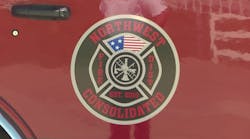If you are a leader, you must wake up to the fact that you are in the knowledge business.
Whether it is in gathering a wide range of facts, in monitoring the latest technical trends or in the arena of human interaction, you must be aware of the latest and the best ideas on doing this thing we call firefighting. And you must learn to share. Doesn't that sound like something your kindergarten teacher was trying to tell you oh so many years ago?
Some of the saddest examples of leadership deadwood I ever met were people who never shared what they knew. I guess the best way to categorize these people is to lump them all together into a general class of human subspecies known as "knowledge hogs." I bumped into people like this time and again as I moved through my career in the fire service.
These people are not hard to identify, once you catch on to them. You see them at many of the big fire service conferences. They are paying rapt attention to the words of every speaker. They grab two or three copies of every handout, then badger the salespeople in the exhibition halls to learn everything they possible can about the latest in technology.
Now you may be saying, Harry, what is so bad about that type of behavior? Don't we want people to do that? Yes we do. But the part of the equation that makes these people so useless occurs when they return to their communities. These people could become a real source of help to their departments, many of whom paid for these knowledge hogs to travel and eat at the finest restaurants. But they don't, because they keep everything they learn to themselves. They get some weird sense of self-importance from the fact that they can go amongst their associates saying to themselves, "I know more than you do, nyah, nyah, nyah."
But Harry, you may be asking, who would be so selfish? Trust me, they're out there. In their minds they feel quite important, but in their organizations they are a real source of hard feelings. People like this do sometimes arrive in positions of leadership. Whether by test or by ballot, they sometimes gain positions where they can spread their doctrine of selfishness.
And these folks are dangerous, because they like to gather similar selfish souls unto themselves. Then you have a clique made up of self-righteous Knowledge Nazis. They have enough knowledge to do many good works, but they keep it to themselves, because they feel that it gives them power over those who do not know as much (or so the Knowledge Nazis think). Just remember that a person with a thirst for knowledge will seek out the necessary sources to quench their thirst. But think of the divisive nature of an environment like this.
A good leader is a sponge when it comes to knowledge, always out there sucking up the widest possible array of knowledge. But remember, in order to be effective, a sponge operates in two ways. It can suck up a great amount of fluid. But if you want to be able to use the sponge a second time, you must squeeze the fluid out and go back for another load.
As I said at the beginning of this visit with you, a good leader is a teacher. Just what do you need to know in order to become a good teacher? Remember that a good teacher is one who can create an environment wherein learning is a prized activity. Perhaps a good place to start would be a basic definition of what learning is. How can you teach if you are not aware of how learning occurs.
According to the fine IFSTA text Fire Service Instructor, learning is a relatively permanent change in behavior that occurs as a result of acquiring new information, skills or attitudes from or through an experience. Once an individual has gained that experience, it is improved upon it through practice.
Experts in the field tell us that learning is most likely to occur under conditions of focused attention and deliberate effort. What this means to you is that when people are motivated to learn, for reasons that are very important to them, they will learn. The stronger the force of the motivation, the greater the level of learning.
As a leader interested in sharing knowledge, it is your duty to insure that conditions exist that allow this change in behavior to occur. To accomplish this, you must understand what motivates people. Then it is critical for you to create an environment wherein those motivational opportunities exist. In other words, you must create a departmental mindset wherein education and knowledge are valued commodities.
Bear in mind that a great many fire chiefs and administrators are still scared of knowledge. As practitioners of the Ancient Art of Mushroom Management, they hold information to a minimum. An enlightened fire department is a threat to their weak hold on power. Needless to say, these are not effective leaders. Be aware of the difficulties of working in an environment like this. Trust me when I say that it is tough. Do not let this stop your personal drive for learning excellence.
To assist you in your development of a learning environment, you must understand the various types of learning that can occur. Perhaps the most expensive and least effective is our old friend, trial and error. It can be expensive, time consuming and unsafe. Put this method on the back burner. It can kill and maim its practitioners.
The three basic ways in which learning occurs are:
- Cognitive
- Psychomotor
- Affective
It is in the cognitive domain you find your most commonly understood method of learning. Here you are dealing with recall or recognition of knowledge and the development of intellectual abilities and skills. You will find that the delivery of information in the cognitive domain is handled through the medium technical information lectures.
According to Fire Service Instructor, there are six stages of cognitive learning:
- Knowledge - Recalling and recognizing information.
- Comprehension - Understanding the meaning of information.
- Application - Using information learned in specific situations.
- Analysis - Breaking information into parts to understand the whole.
- Synthesis - Integrating the parts to invent a new whole.
- Evaluation - Using standards and criteria to judge the value of information.
By understanding how people learn, you can develop a more effective approach to teaching. You can create bite-sized pieces of learning that can be easily digested by your students. Some of these might involve discovering new information, facts and ways of doing things.
Once your students know about these things, and can explain them, you can help them translate these facts into new and related situations. The ability to transfer knowledge to new situations is a good sign that relatively permanent learning has happened.
Psychomotor, or skill, learning is the range of learning used by those of us who train fire and emergency service workers. This type of learning encompasses those competencies needed to actually maneuver an implement or make a bodily move to do something. I am talking about the combination of brain and brawn to get a job done.
According Fire Service Instructor, the concept of psychomotor refers to the skills involving the senses and the brain as well as the muscles. You can easily see how critical this type of learning is to a physically demanding field like firefighting. How many of you have spoken time and again about how firefighting is such a labor-intensive field? If you are to succeed in this aspect of our business, you must understand how we blend the mind and the body to perform firefighting tasks.
According to Fire Service Instructor, just as in the cognitive domain, each psychomotor level is progressive, building one upon the other. These levels are listed as follows:
- Observation - Witnessing a motor activity.
- Imitation - Copying a motor activity step-by-step.
- Adaptation - Modifying or personalizing a motor activity.
- Performance - Perfecting the activity until the steps become habitual.
- Perfection - Improving performance until it is flawless and artful.
A quick reading of these five steps tells you exactly how we, as a body of people, learn to fight fire. We look, we perform, we perfect. Unfortunately, there are still cases where these five steps are performed in an on-the-job basis. Fortunately the number of people who still throw a new person out into the field to learn-while-doing is shrinking.
But be warned. There are still people out there who practice this ancient and costly style of our old friend, "trial-and-error learning." Avoid these people like the plague. And if you find yourself in such a place, practice an active form of knowledge acquisition. Buy as many books as you can about firefighting and read them as quickly as is humanly possible. Then pray that you don't get killed or injured in the interim.
That part of learning about which we know the least is the affective domain. This is the touchy feeling part of learning which deals with our attitudes and feelings as they impact on our ability to gain knowledge. As we discuss this domain of learning, you will begin to see just why it is such an imprecise area of expertise.
Once again you will find that the levels of affective learning are sequential in nature, building one upon the other. They move from basic awareness of something to making it a part of their chosen attitudes. They then do their job in the newly learned way.
Fire Service Instructor tells us that the levels of learning in this domain are:
- Receiving - Becoming aware of a concept.
- Responding - Indicating that the concept has been received.
- Valuing - Internalizing and committing to some position.
- Organizing - Internalizing and adjusting among values.
- Characterizing - Adopting and personalizing the concept or value.
As you can imagine, there is no scientific way of measuring this type of learning. The manner in which each individual assimilates knowledge as a result of affective learning is different. These differences occur based upon individual personalities and the influences on them during their period of growth and maturation.
When I am dealing with the internal aspects of affective learning, it is possible that you may be forced to use clues, rather than measurable performance for your measuring stick. If a person seems to perform the desired task willingly, without threats or coercive measures, then you may infer from these actions that the learning has taken place.
Now that we have covered the ways in which people learn, let us personalize it to the realm of the effective leader as a teacher. Concentrate on remembering the one man or woman who helped you to become the successful fire person you are today. Think of what they did and how they did it. Remember what it was about them that motivated you to succeed.
Having done this, I want to move on to a discussion of motivation and its critical importance in the delivery of knowledge. It is an axiom of the training world that people will learn better if they perceive that it will be in their best interest to do so. One of the great differences between educating young people and educating adults involves the reasons for the learner being in the learning equation.
The industrial psychologist Harold Leavitt said it quite well in his text, Managerial Psychology, when he stated that while people are alike, they are also different. They are alike in that their behavior is caused, motivated and goal directed and their physical equipment is roughly similar. They are different to the extent that they are subject to different kinds of stimulations and behave in different ways to achieve different goals.
The things that we need (and want) in life create goal driven-behaviors on our part. A need has been described by some experts as a deficiency in our personal being at a given time; something that which, if provided, will make us a whole person again. Perhaps the best description of needs and what they are comes from the work of Abraham Maslow.
During Maslow's years with the Air University, he developed an excellent analytical frame of reference with regard to what he perceived needs to be. His "Hierarchy of Needs" is one of our standard starting points in any discussion of human behavior or its effect on education. I draw heavily from it for my training programs. At this point, I will draw upon the experience and guidance of the text, Fire Service Instructor, 5th ed., to illustrate how the hierarchy of needs can be met in the classroom:
MASLOW'S HIERARCHY OF NEEDS
- Self-actualization - Performing beyond what is required.
- Esteem - Recognized by peers. Praising in front of peers.
- Social and belonging - Being accepted by others determines classroom behavior.
- Safety and security - Adequate knowledge base to belong in class.
- Physiological: Pleasing classroom environment.
Like many other parts of individual human behavior, these needs are progressive in nature; we may not move to a higher level until the needs at the lowest level are fulfilled. The mind is an extremely complex commodity. When it is ready and willing, it can do wonders. When it does not want to perform, it is difficult to achieve anything.
The motivation for the student can come from a variety of sources - the need for money, recognition or promotion. The desire of the student to learn must be nurtured by the leader. If your troops cannot look to you for the new skills and knowledge they need, they will look elsewhere. And your time as a leader will have passed.
Harry R. Carter, Ph.D., MIFireE, a Firehouse® contributing editor, is a municipal fire protection consultant based in Adelphia, NJ. He is also an associate professor at Mercer County Community College and a past chief and active life member of the Adelphia Fire Company. Dr. Carter retired from the Newark Fire Department in 1999 as a battalion commander. He also served as chief of training and commander of the Hazardous Materials Response Team. Dr. Carter is a Member of the Institution of Fire Engineers of Great Britain (MIFireE). He may be contacted through his website at [email protected].




